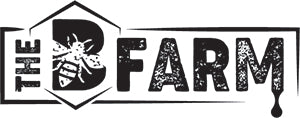Beekeeping isn’t something to start on a whim, as it requires extensive setup and knowledge. Although you’ll learn more as you progress in your new journey as a beekeeper, knowing a few helpful pointers to start makes it much easier to be successful. First of all, while beekeeping is a relatively safe hobby, it isn’t free of risk—follow along for the most important beekeeping safety tips to know.
Do Hive Inspections in Nice Weather
Hive inspections are crucial to maintaining healthy colonies but can be risky for new beekeepers. After all, you have to enter the hive to check on the status of the bees, their brood and honey, and the mite count. This may cause the bees to think you’re an intruder. However, fewer bees will be inside the hive if you choose warm, sunny days for your hive inspections.
A less-crowded hive will be easier to work in, as you’re less likely to disturb cranky bees. If you don’t have to enter the hive on a gloomy or stormy day, put it off—wait until most of the bees are out and about.
Avoid Triggering Scents
Because sweet scents attract bees, you should avoid wearing strong perfume when approaching the apiary. If your perfume smells of fruit or flowers, the bees are more likely to come to investigate you, which may lead to unwanted swarming. Furthermore, the aroma of bananas is similar to the alarm pheromone that tells bees to attack—avoid eating bananas before approaching the hive to prevent unwarranted bee stings.
Consider Allergy Testing
It’s no secret that many people have beesting allergies, and most of these people didn’t find out until a bee stung them. That said, becoming a beekeeper puts you at an elevated risk for stings. If you’re unsure whether or not you have a bee allergy, consider asking your doctor to conduct allergy tests to determine if you’ll react negatively to a beesting. Having an allergy doesn’t mean you can’t keep bees, but you’ll have to keep EpiPens nearby in case of stings.
Wear Protective Gear
Even though many advanced beekeepers will approach their hives without gloves or a veil, beginners should wear protective gear at all times. A bee suit, gloves, and veil will put your mind at ease when it comes to being up close and personal with your colony.
Beekeeping is an excellent hobby, but it requires preparation and learning for a successful start. Hopefully, knowing these important beekeeping safety tips will help you start your new adventure on the right foot. If you’re looking for pol-line queens, visit the B Farm online for a variety of bees and nucs.
